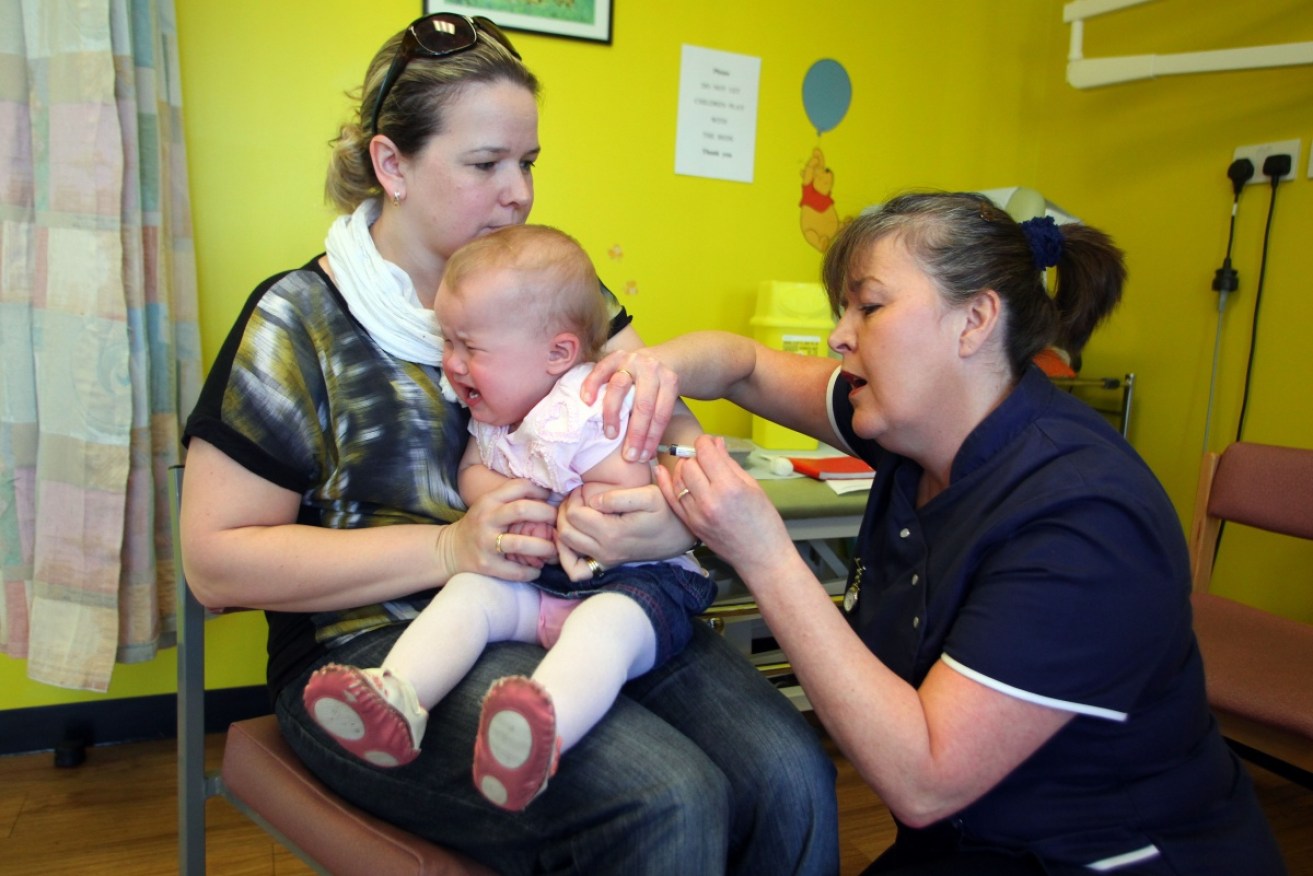Rubella eliminated in Australia – and it’s all down to vaccinations


The jab might be painful, but it's also life-saving. Photo: Getty
Rubella has officially been eliminated in Australia – a move that proves vaccinations work, Health Minister Greg Hunt says.
The World Health Organisation confirmed late on Wednesday that the viral infection, also known as German measles, no longer exists in Australia.
Rubella is a contagious disease whose symptoms, including fever, rash and swollen lymph glands, are mild. But its consequences can be severe.
When contracted by women in early pregnancy, it can cause miscarriages, stillbirth or life-long problems for their babies, including: deafness, vision problems, inflammation of the brain, heart defects, liver disease, bone disease and growth retardation.
Rubella is caused by a different virus than measles, and is neither as infectious nor usually as severe as measles. There have been several outbreaks of the latter over the past year, with those incidences linked to overseas visitors.
Mr Hunt said rubella’s elimination in Australia sent a powerful message about the effectiveness of vaccinations.
“The science is in and the medical experts’ advice is absolute – vaccinations save lives and protect lives and they are an essential part of a healthy society,” he said.
Professor Elizabeth Elliott from the University of Sydney told Fairfax Media that early in her career she had seen children born deaf and with eye and heart problems as a result of rubella exposure during early pregnancy.
“Some of these children had microcephaly or small brain, hence were developmentally delayed… really confining that child to a life where they had significant disability,” she said.
“They were children whose mother might have had a rash or fever during pregnancy, which was often quite trivial.”
Australia’s national immunisation program, which provides government-subsidised jabs, provides free rubella vaccinations for children aged 12 months, with a booster at 18 months.
Official figures released last week showed that more Australian five-year-olds are fully immunised than ever before.
“I commend the efforts of Australia’s health professionals over the decades and the millions of parents who ensure their children are always vaccinated,” Mr Hunt said.
Australia also has a surveillance system in place to rapidly detect and respond to rubella cases, Mr Hunt said.
The nation has had rubella epidemics, with the most cases officially reported in 1958 (more than 5000 cases), 1963-64 (at least 3000 cases) and in the early 1990s (more than 4000 cases).
The WHO said just eight cases of rubella had been reported in Australia so far this year. They were considered most likely to be the result of people bringing in the illness from overseas.
The WHO also confirmed on Wednesday that Australia has maintained its measles elimination status, which was verified in 2014.
-with AAP








